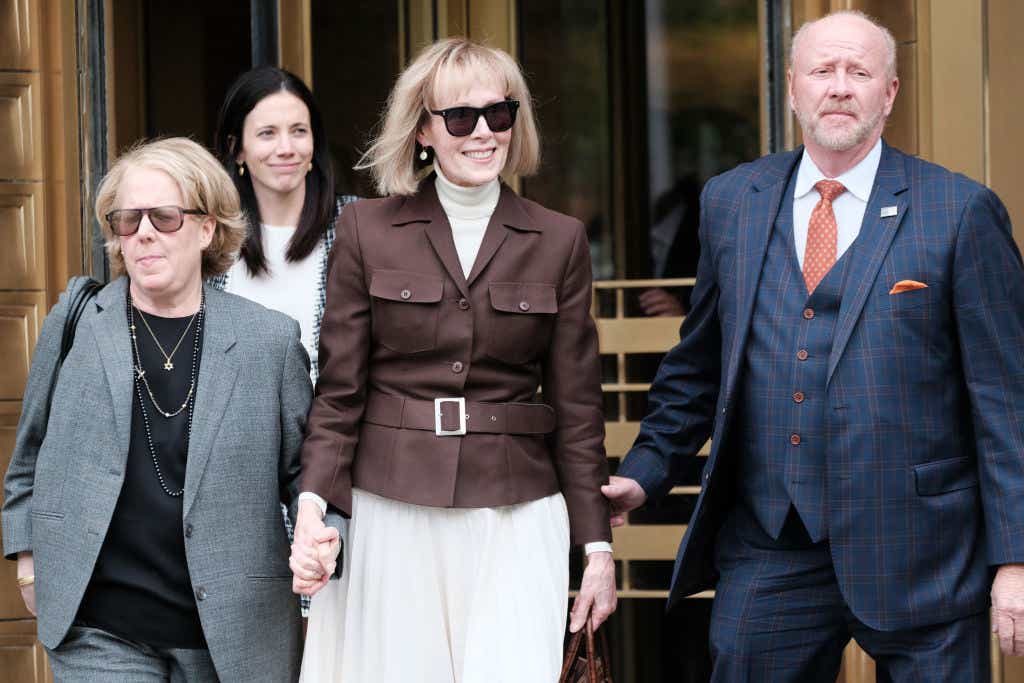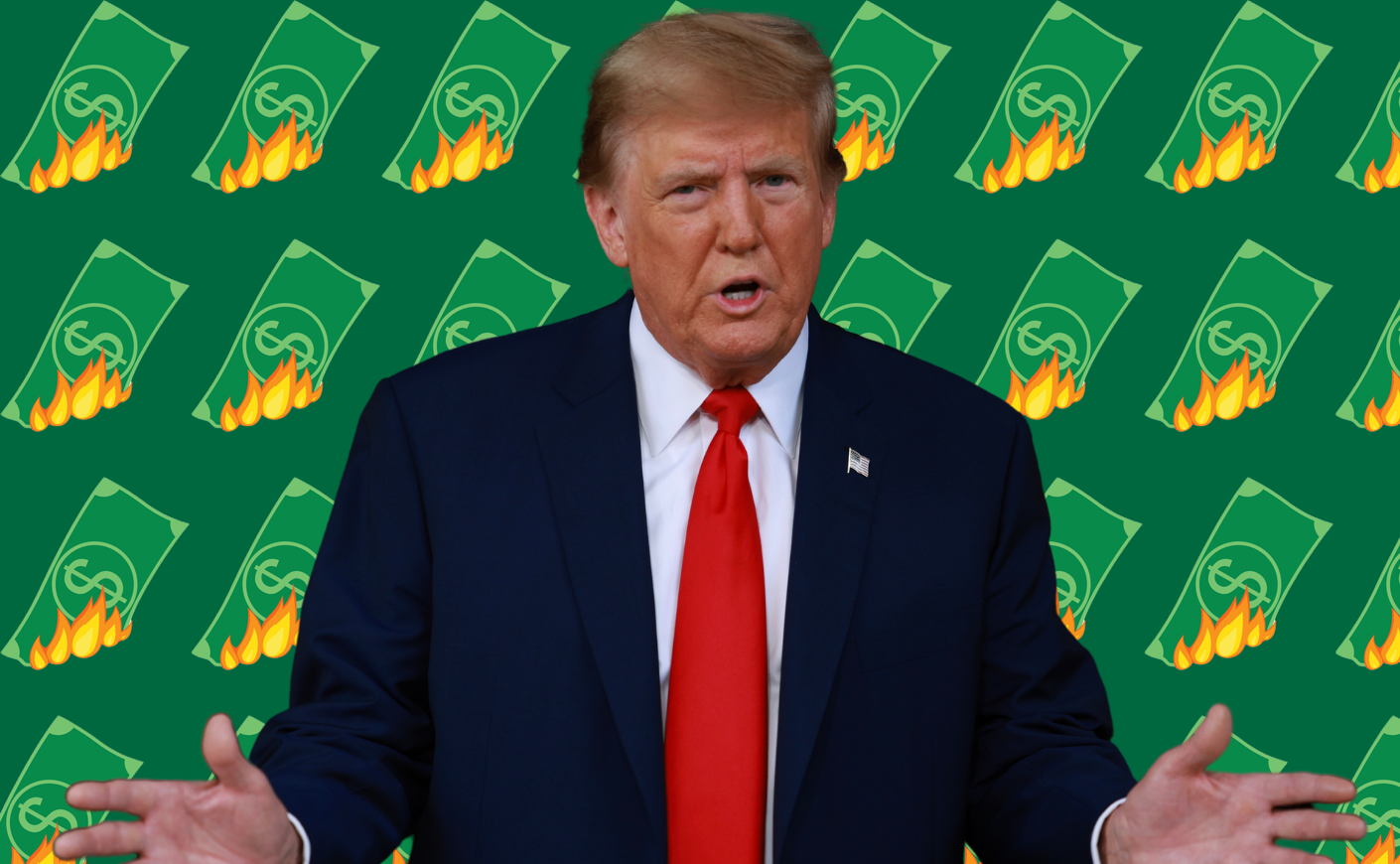Former President Trump’s owes a staggering amount in fines following his court battles. In what marked a crushing loss on Friday, Judge Arthur Engoron ordered former president Donald Trump to pay nearly $355 million in a civil fraud case out of New York.
This stiff penalty comes just weeks after he was ordered to hand over $83.3 million to journalist E. Jean Carroll for defaming her after she accused him of sexual assault. (A separate jury last year awarded Carroll $5 million from Trump for sexually abusing her in 1996 at a Manhattan department store.) With all of this mounting debt, one question that keeps coming up is how the Republican candidate will pay for all of this.
Tack on interest payments to those penalties, and that could deal a staggering blow to Trump’s personal fortune — and potentially to his campaign as he seeks reelection. Meanwhile, the former president has adamantly denied wrongdoing and pledged to swiftly appeal the decision, but that process could take months or even years.
For now, here’s what we know about how much money Trump owes, whether he’ll be forced to pay up, and what comes next.
How much money does Trump owe now?
In total, Trump owes about $542 million in legal debts — and that number could climb even further. Under Judge Engoron’s ruling in the fraud trial, Trump will be required to pay interest on some of the deal profits he has been ordered to give up. New York Attorney General Letitia James, who first brought the case against him, said the interest payments totaled $99 million and these would “continue to increase every single day until it is paid.”
The former president also has to pay an additional $125,000 for violating court orders in his civil fraud case, including refusing to comply with a subpoena. And he wouldn’t be able to get out of these penalties so easily, as he will be held liable even if the Trump Organization declares bankruptcy.
Trump’s financial woes don’t stop there — last month, he was ordered to pay nearly $400,000 in legal fees over a failed lawsuit against The New York Times. He’s also appealing a $938,000 fine for filing what U.S. District Judge Donald Middlebrooks criticized as a “completely frivolous” lawsuit against former rival Hillary Clinton.
How quickly does Trump have to pay up?
Trump has already handed over $5 million, along with an additional $500,000 in interest that he owed as part of Carroll’s first defamation case. Since these were put into a court-controlled account, she won’t have access to these funds until after the appeals play out.
The former president will also likely have to do the same for the $83.3 million he owes as part of the second Carroll verdict. But if he secures a bond, he may only have to pay a portion of that amount up front.

As for the civil fraud case, the courts still need to decide how much Trump must pay as he starts his appeal. But he could be forced to pay the full amount immediately after the appellate court rules. University of Michigan law professor Will Thomas told ABC News that New York’s judicial system generally likes to move fast on Trump issues, and a ruling could come down as soon as this summer.
Can Trump afford to pay the penalties?
Trump is known for a lot of things — but transparency is not one of them. In what marked a break of tradition for presidents, he refused to release his tax returns during his time in office from January 2017 to January 2021.
As a result, his personal net worth and his business empire’s earnings have always been largely a mystery. While Trump has claimed to be worth more than $10 billion, most estimates — including the one from the New York attorney general — put that figure closer to $2 billion.
It’s also unclear just how much cash he has on hand since much of his wealth is tied up in real estate. According to his 2021 statement of financial condition, Trump said he had just under $300 million in “cash and cash equivalents.” Since then, he has made several sales, including his New York golf course and his Washington, D.C. hotel.
But even with those various income streams, it remains to be seen whether Trump and his family members have enough cash on hand to pay all the money they now owe. (As part of the civil fraud case, Trump’s sons, Donald Trump Jr. and Eric Trump, were each ordered to pay $4 million.)
Can Trump use political donations to pay fees?
Federal election law prohibits candidates from using campaign funds for personal expenses. But the rules are pretty murky when it comes to tapping political action committees for such purposes.
Although PAC money can be used to cover administrative expenses like travel, the Federal Election Commission, which enforces campaign finance law, hasn’t clarified whether the ban on using campaign funds for a candidate’s own use applies to leadership PACs.
Now, some campaign finance experts worry Trump will try to take advantage of this discrepancy and spend PAC money to offset his legal costs. Over the last two years, Trump’s Save America political action committee, his presidential campaign, and his other fundraisers have devoted $76.7 million to legal fees to cover lawyers and other associated costs.
Nikki Haley, who’s challenging Trump for the Republican presidential nomination, has also speculated that the president would siphon campaign cash from the Republican National Committee to pay at least some of it. And he could have some sway after promoting his daughter-in-law Lara Trump to be co-chair. “I don’t want the RNC to become his piggy bank for his personal court cases,” she told CNN.
Is Trump selling shoes to cover his legal bills?
A day after his whopping penalties in New York were announced, the former president launched his own footwear line. He has already sold out of his gold “Never Surrender” high-top sneakers, which sold for $399. There are also two other pairs of Trump-themed shoes that cost $199 that come in red or white and a cologne called “Victory 47,” which is going for $99 per bottle.
While CNN’s Jake Tapper and others have speculated the former president could use his sneaker sales to pay for his legal fees, the site selling these items claims to be “not political and has nothing to do with any political campaign.”
Trump’s also already gotten some additional help from his supporters. Elena Cardone, who’s married to investor Grant Cardone, started a GoFundMe page to fund Trump’s mounting legal expenses, and so far, it has already raised more than $185,000.
What happens if Trump doesn’t pay?
Legally speaking, Trump would face the same consequences as anyone else if he fails to pay his fines. This could include seizing his assets, garnishing his wages, or even putting Trump Tower up for sale. Imprisonment is another possibility, though that’s not very likely.
Ultimately, Trump’s former lawyer, Michael Cohen, predicted that the ex-president might be forced to liquidate assets. “What else is he supposed to do at this point?” said Cohen, who testified against Trump in the fraud case.
Since Trump and his family have now been barred from having any role in running the real-estate empire, an additional monitor — lawyer Barbara Jones — will oversee the Trump Organization’s finances in the civil fraud case. This means she will have power over making key financial decisions, including loan applications.
This move came after a report found that Trump and others couldn’t be trusted to follow the law. In a report issued to Judge Engoron before his ruling in the Trump Organization fraud case, Jones said that she had determined the company had multiple “disclosure deficiencies,” in which financial reports were “either incomplete or demonstrated a lack of transparency.”









